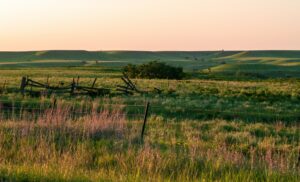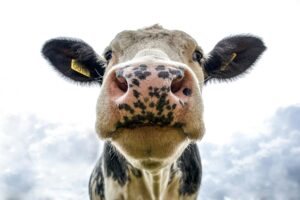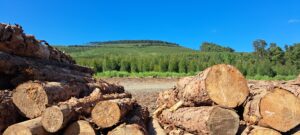
Planting trees in grasslands won’t save the planet – rather protect and restore forests
Why rangelands matter, and why misguided initiatives here do more harm than good …
A random test this week showed that a link from the Agribook website to a grower guide on the Department of Agriculture website was no longer working. A few more clicks showed that none of the others were as well, nor, as it turned out, was https://www.daff.gov.za/!
Under the Cyril Ramaphosa administration, the Department of Agriculture, Forestry and Fisheries (DAFF) became the Department of Agriculture, Land Reform and Rural Development (DALRRD). True, Agriculture has had previous names too, but the links on its website have been redirected, and it was not uncommon to click on one document or another and find https:// www.nda.agric … in the browser window.
There is a “Find and replace” in the programme in which we lay out content for the PDF and Hard copy version of the website for sale, and we asked the web chaps if something similar could be done on the website. They could, and also suggested doing a blog on the change of domain and to widen it to something like: “The top 5 agriculture websites that every emerging farmer needs to know about”.
The first one is obviously this one, https://agribook.co.za. It is the best starting point, even if it directs you onward to a person or organisation who will help you further. Whether it’s help with a well known livestock or a lesser-known crop, or where to find help with a marketing proposal, people are helped by this website. And if you cannot find what you are looking for, you drop us an email.
The role of a mentor is key, usually someone who is already farming and who can show you the ropes. For this reason, the district farmers’ group affiliated to a commodity organisation or an organised agriculture body would be a first stop. Find provincial affiliates to Agri SA on our “Organised agriculture” page. These websites may not have technical information; rather they will provide an overview of the organisation, tell you who is who and give you a point of contact.
The commodity organisations: If you are a grain farmer, for example, this will be www.grainsa.co.za. A cotton farmer will view https://cottonsa.org.za, a pig farmer https://sappo.org. And so on. The agribusinesses — the old co-ops — usually play a supportive role here and your local one will probably have information on its website. Once again, there will be points of contact but also a fair amount of the technical information you require.
The weeklies – Farmer’s Weekly and (for Afrikaans speakers) Landbouweekblad – are a useful source. The strength here are the regular stories of farmers and what they have done to succeed. A more recent website, Food for Mzansi, also contains regular stories with a particular focus on new farmers and women.
Video clips of how to plant fruit trees, look after chickens or whatever are instructive. When we see something demonstrated we are more likely to get it right, than when we have to read paragraphs. For this reason, videos (and social media agricultural groups) on Facebook, and videos on YouTube will be an essential visit.
(If we had treated YouTube and Facebook as two separate entries, then this one would have dropped off the Top 5 list but we would still have kept it as an honourable mention).
It is not uncommon for Government websites to be out of date, but on certain pages you will find a wealth of help. The grower guides, marketing brochures and co-operative manuals by DALRRD are an example. (Of course it is easier to access these via Agribook, from the relevant page e.g. Co-operatives, Beef cattle farming etc.)
Provincial department of agriculture pages can be helpful. In our experience, the KZN and Western Cape ones have been the most dependable.
Parastatal or semi-government organisations would include the Agricultural Research Council (ARC) and National Agricultural Marketing Council (NAMC). Find grower leaflets and articles under the “Media” option on the first, and stories of farmers on the second (see the latest Agripreneur).
Photo by Meghan Schiereck on Unsplash.

Why rangelands matter, and why misguided initiatives here do more harm than good …

Nitish Boodhoo, University of Guelph The confirmed presence of bird flu in American dairy cattle in a March 25 report from the U.S. Department of

Press release While life without plastic might be hard to imagine, there is a renewable, recyclable and sustainable alternative to single-use plastics and many other